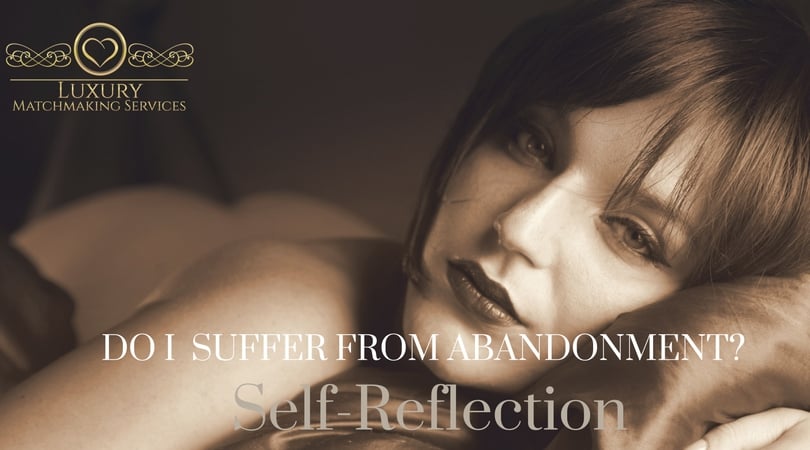4 WAYS TO RECOGNIZE ABANDONMENT BEHAVIORS.
#1 Avoiding Relationships
Are you jumping from one relationship to another relationship? Do you ever wonder why your relationships are so hard to maintain?
A tendency to avoid or limit relationships with others. We all know at least one person who holds people at a distance, who doesn’t allow anyone to be their friend, and who avoids outings with others. People who do this generally do so because it’s safer than being vulnerable and open with others. Unfortunately, this simply perpetuates the amount of rejection that they will experience. Everyone fears rejection. People who seem to avoid relationships are generally perceived as aloof and standoffish (both appear rejecting) which tends to cause people to avoid them.
So, you’re probably either asking yourself what exactly abandonment is. Feeling Abandoned is simply a negative emotional state based upon perceptions or beliefs of being rejected. We all want to be liked, loved, and admired by other people. Abraham Maslow even created an entire theory about an individual’s need to feel liked and cared about liked by others. Maslow believed this need was biologically ingrained. He believed that this need is essential to the development of an individual and a common motivation for behavior. One interesting study that supports this statement; demonstrates that rejection can actually cause us physical pain.

Unfortunately, we have all been rejected by someone at some point in our lives based on some intrinsic aspect(s) of our identity. An intrinsic aspect could be as important as your race or sexual orientation or as simple as your hair color. If it’s an aspect of yourself that is important to you; then it is a factor that shapes how you feel about yourself. Being abandoned based on these characteristics is painful because of something called the ‘Looking-Glass Self’. The ‘looking glass self’ is a theory created by Charles Cooley in 1902 which simply states that people shape their perception of themselves based on how others treat them. Repeated instances of being abandoned or rejected tend to lead to issues regarding self-esteem or abandonment. According to one research study, previous instances being abandoned tend to cause people to expect it in their relationships. What’s worse is when people fear being abandoned; they behave in ways that are not favorable for their new potential lovers.

#2 Accepting Abusive Behavior
A tendency to accept intolerable or abusive behavior in a relationship. We commonly hear or know of a person who is physically, emotionally, sexually, or verbally abused and chooses to stay or keep going back to their abuser. When we expect rejection, we have a tendency to feel as though we are not worthy or deserving of respect. This ironically is the reason many people decide to stay in these relationships because they believe that this is the best that they deserve.

#3 Fear of Being Left Behind
DO YOUR SIGNIFICANT OTHERS TEND TO ABANDON YOU?
A tendency to use intolerable or abusive behavior if the other person tries to leave. A tendency to use intolerable or abusive behavior if the other person tries to leave. We commonly hear of people becoming so possessive of their partner that they will even threaten or harm their partner to keep the other person around. People do this because they know the pain of rejection from childhood. Most people who do this have experienced child abandonment or abuse themselves usually by a parent. This leads to attachment issues that tend to express themselves in inappropriate ways.

#4 Lack Of Communication
They deny your needs to maintain the relationship. This, unfortunately, is very common too. People will often withhold telling their partner what their needs are because they feel that the fewer demands they place on their partner the more likely they will stay.

If you have recognized any of these traits describe your relationship patterns; be sure to visit How To Overcome Being Abandoned.
- Eisenberger, N. I., Lieberman, M. D., & Williams, K. D. (2003). Does rejection hurt?: An fMRI study of social exclusion. Science, 302(5643), 290-292
- Cooley, C. H. (1902/1983/2017). Human nature and the social order. New York, NY: Routledge
- Downey, G. Freitas, A. L., Michaelis, B., & Khouri, H. (1998). The self-fulfilling prophecy in close relationships: Rejection sensitivity and rejection by romantic partners. Journal of Personality and Social Psychology 75(2), 545-560.

